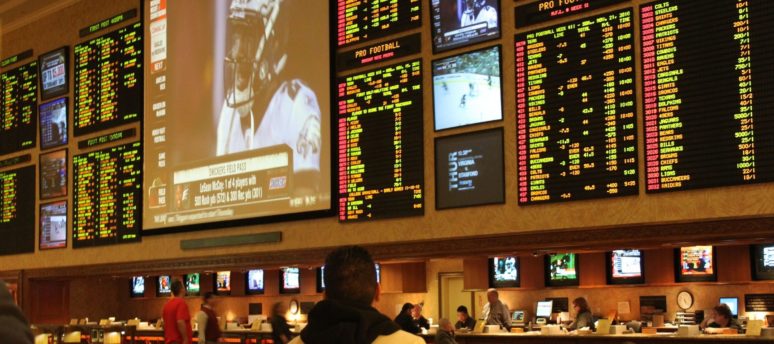When it comes to wagering money on sports, everyone seems to have “gut” feelings or predispositions to certain situations that they believe gives them an advantage.
The problem with these feelings is that while they may appear rational at first blush, most do not hold up, either mathematically or when tested against historical results.
These are four of the most common and potentially most damaging biases sports bettors tend to have.
Why Listening to Your Gut is Costing You Money When Betting on Sports
1. Anchoring
Anchoring occurs when you view a theoretically arbitrary number and that number affects how you perceive an event. That number in gambling is known as the point spread.
Whether you are aware of it or not, the number the oddsmakers set impact how you view a game. For example, if you see one side is a 4-point favorite, your initial (and seemingly logical) reaction is that you are looking at the better side.
What you don’t realize is that, had you looked at the matchup before seeing the point spread, you very well could have come to the conclusion that the underdog is, in fact, the better of the two teams.
This is why you should attempt to handicap games before looking at the point spread so that it does not influence your research. If you are too far off, it’s possible you missed something like a major injury, but in many cases, this will help you find an edge outside of the oddsmakers influence.
2. Availability Bias
This phenomenon occurs when you attach meaning to a recent or significant event’s influence on an upcoming event. This can show up in in a number of ways.
If a team just beat last year’s championship team, you may think that team has a better chance of winning their next game. If a team just defeated another team by a huge margin, you might also think they have a better chance of winning their next game.
This also works in the opposite direction, for example, since this team beat the championship team from last year, they should lose tonight – for whatever reason you come up with to justify the feeling. It’s a different way of thinking about the game, but it is the same bias.
The problem with the availability bias is that it totally makes sense in your head – it’s just that, in most cases, it doesn’t match up with reality. Now, that’s not to say that there are not previous games that do impact upcoming ones, it’s just not that all do it in the same way so it is foolish to follow it blindly.
3. Escalation of Commitment
This is one of the biggest pitfalls for sports bettors. Escalation of Commitment occurs when people try to justify a commitment by increasing their overall investment.
The biggest example of this I see is taking a team for the game, seeing that team play terribly in the first half, then betting on them to cover the second half line.
Instead of just cutting their losses (or waiting to see if maybe their team comes back), they increase their investment for little reason beyond trying to justify that original bet.
4. The Gambler’s Fallacy
The Gambler’s Fallacy is the tendency for people to believe that statistically independent events actually represent and are influencing a sequence of events.
Let’s say a team has beaten the spread seven times in a row. That streak has to come to an end right? The problem with this mode of thinking is assuming the seven previous games have any impact on the eighth.
Each game independently (theoretically and historically) has a 50% chance of one team covering and a 50% chance of the other team covering – this occurs outside of the influence of the previous seven games.
Don’t let your mind trick you into thinking arbitrary winning or losing streaks are bound to end.
Try to avoid these common pitfalls as much as you can. Focus on what you can back up with statistics and evidence instead of what you feel in your gut. Your bankroll will be much healthier because of it!


